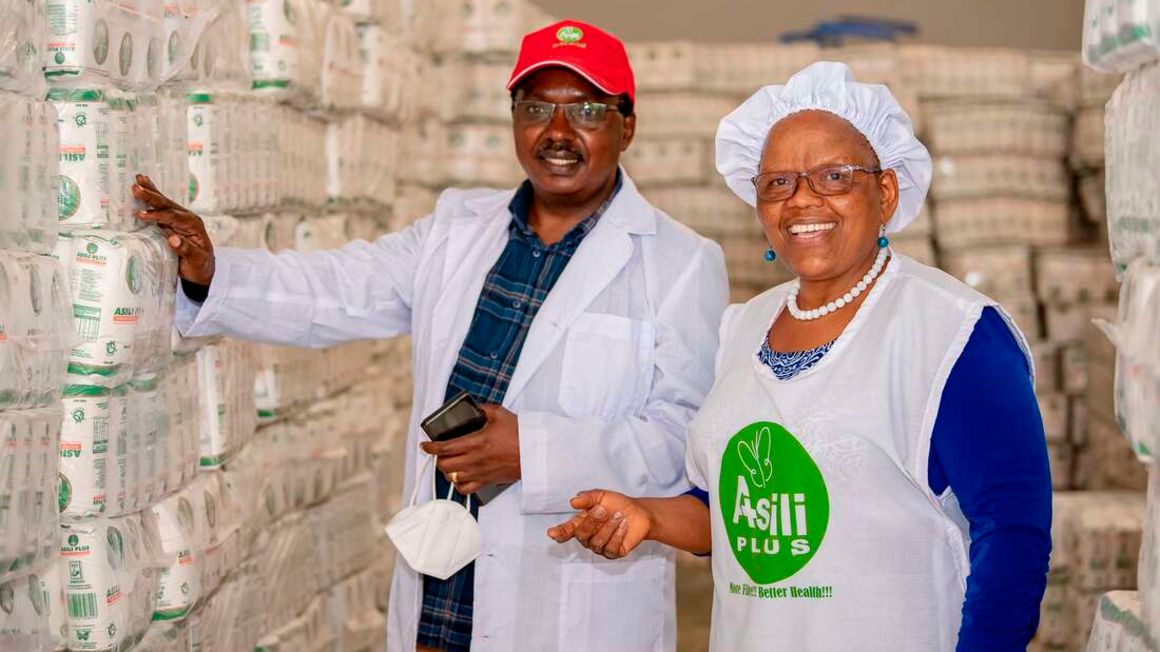A few years back, the Kinoti couple found themselves at a crossroads when the government attempted to impose a hefty 50% levy on sorghum beer.
This policy shift left them with tons of sorghum grain that they had no idea what to do with.
Little did they know that this unexpected challenge would become the catalyst for transforming their lives and the lives of countless farmers, ultimately leading to the establishment of a thriving milling factory.
Daniel and Ruth Kinoti turned adversity into opportunity.
The couple, who had previously ventured into the cereal aggregation business, were left stranded with a surplus of sorghum grain due to the government’s decision.
Rather than succumb to despair, they used this setback as a valuable lesson in diversification and market resilience.
Realizing the importance of not relying on a single market, Daniel and Ruth decided to pivot their business.
They transformed their cereal aggregation endeavor into a full-fledged milling factory, creating a ripple effect that would impact numerous lives in their community and beyond.
Their factory, loacted in Meru County, Kenya, has since evolved into a hub of productivity and positive change.
The firm processes maize, soya, finger millet and sorghum into flour. The couple had also begun processing pre-cooked maize meal.
“Many consumers like sifted maize flour which has low nutritional value and has to be complemented with a good stew but not many Kenyans can afford such. As a result, we invested in whole grain flour which is very nutritious,” Mrs Kinoti said as quoted by the Business Daily.
Prior to establishing the flour mill in 2019, Daniel and Ruth Kinoti had engaged in the cereal aggregation industry since 1998.
During this period, they procured maize and various other grains from local small-scale farmers and supplied them to educational institutions.
Faced with difficulties in market access due to limited quantities and logistical obstacles, local farmers often found themselves with surplus grain stocks languishing for extended periods.
In this context, the Kinoti couple emerged as a timely solution, effectively addressing this gap in the market.
“In 2009 the East African Breweries Limited, came looking for sorghum and they contracted us to source the cereal from farmers on their behalf,” explained Mr Kinoti.
At the heart of the Kinotis’ mission is a commitment to supporting local small-scale farmers.
Through their enterprise, they have contracted over 40,000 farmers to supply the raw materials needed for their diverse range of products.
The couple’s approach goes beyond profit; they encourage farmers to organize into groups, fostering a sense of collaboration and collective empowerment.
What sets the Kinotis’ operation apart is their focus on both economic viability and nutritional value.
While many consumers prefer sifted maize flour due to its lower cost, the Kinotis recognized the demand for healthier alternatives.
To address this, they invested in producing whole grain flour that boasts higher nutritional content. This initiative not only aligns with consumer preferences but also contributes to improved food security.
The Kinotis’ journey from cereal aggregation to their current success was not without its challenges.
Back in 2013, their enterprise faced a critical juncture when the government proposed a 50% excise duty on a popular sorghum beer consumed by the low-income market.
This move had a cascading effect, leaving both farmers and aggregators in a state of uncertainty. However, this setback propelled the Kinotis into action.
Learning from the experience, they embarked on the journey of setting up a milling factory with renewed determination.
Their persistence paid off, leading to significant growth and recognition.
In 2021, months ago, their enterprise received a substantial grant of Sh10 million from the Global Alliance for Improved Nutrition (GAIN).
This boost allowed them to enhance their production capacity, furthering their commitment to providing nutritious and affordable food options to the base of the pyramid consumers.
“The support has accelerated our growth as a private business. We have acquired new machine with a capacity of 1.5 tonnes per hour, which is quite high compared to what we had initially,” said Mrs Kinoti as quoted by the Business Daily.


